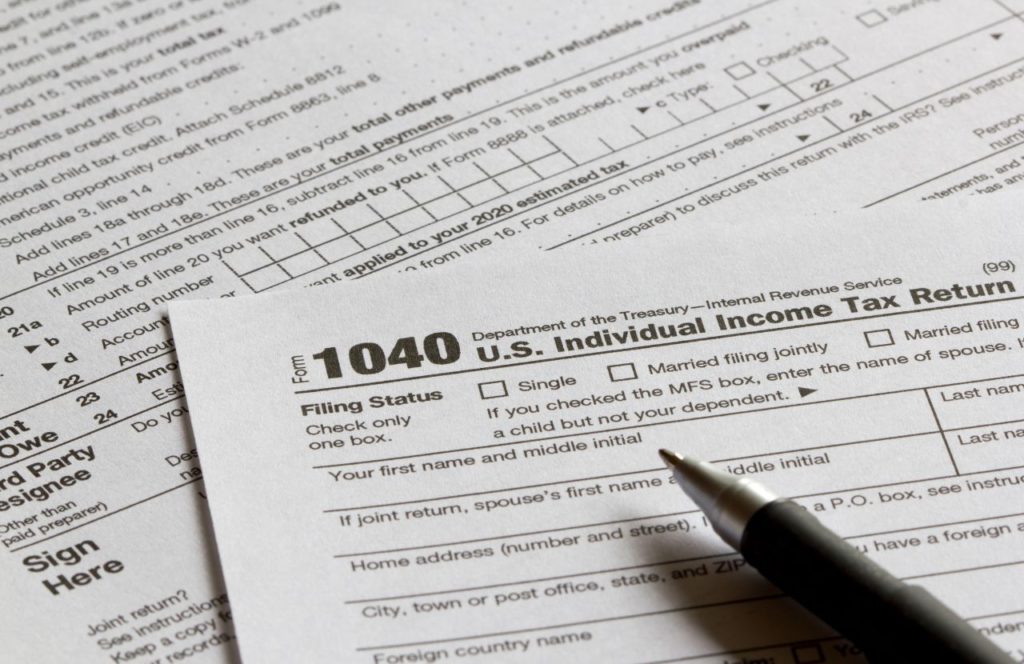When it comes to purchasing a car, the sales tax can add a significant amount to the total cost. However, many people wonder if they can deduct the sales tax on their car purchase when they file their taxes. The answer is that it depends on a few factors.
THIS POST MAY CONTAIN AFFILIATE LINKS. PLEASE READ MY DISCLOSURE FOR MORE INFO. Which means if you click on any of the links, I’ll receive a small commission at no additional cost to you.
Firstly, it is important to note that only the sales tax paid on the purchase of a vehicle can be deducted, not the entire cost of the car.
Additionally, the amount of sales tax that can be deducted depends on whether the taxpayer chooses to deduct state and local sales tax or state and local income tax.
If the taxpayer chooses to deduct sales tax, they can only deduct the amount that exceeds their state and local income tax.
Understanding Car Sales Tax
Car sales tax is a tax imposed by state and local governments on the sale of vehicles. It is usually calculated as a percentage of the sale price of the vehicle and is collected by the dealer at the time of purchase. In some states, the sales tax is also based on the value of the vehicle.

The sales tax rate on a vehicle purchase can vary by state, county, and even city. It is important to note that the sales tax rate on the purchase of a vehicle is not the same as the general sales tax rate. The general sales tax rate applies to most goods and services, while the sales tax rate on a vehicle purchase is specific to that purchase.
When purchasing a car, there are two ways to calculate the sales tax deduction. The first way is to save all sales receipts and deduct the actual sales taxes paid throughout the year. The second way is to use the IRS sales tax tables to figure the deduction. These tables calculate the estimated sales tax paid based on income and do not include large purchases.
It is important to note that the sales tax deduction can only be taken if the taxpayer itemizes deductions on their tax return. The taxpayer cannot take the standard deduction and the sales tax deduction. Additionally, the sales tax rate on the vehicle purchase must be the same as the general sales tax rate to qualify for the deduction.
In some cases, the sales tax on a vehicle purchase may be waived or reduced. For example, some states offer exemptions for military personnel, while others offer exemptions for hybrid or electric vehicles. It is important to check with the state and local government to determine if any exemptions or reductions apply.
Deductibility of Car Sales Tax
When it comes to buying a car, one question that often comes up is whether the sales tax on the purchase is tax-deductible. The answer is that it can be, but only under certain conditions.
According to H&R Block, taxpayers can deduct sales tax on a vehicle purchase, but only the state and local sales tax. However, it is important to note that this deduction is only beneficial if the taxpayer paid more in state and local sales tax than they paid in state and local income tax.

The Internal Revenue Service (IRS) provides instructions on how to claim the vehicle sales tax deduction on Schedule A of Form 1040. Sales taxes on motor vehicles are deductible as a general sales tax, even if the tax rate was different than the general sales tax rate. Taxpayers can figure the amount to enter on line 2 of Schedule A as follows:
- Determine the total amount of sales tax paid during the tax year.
- Determine the total amount of state and local sales tax paid during the tax year.
- Subtract the amount from step 2 from the amount in step 1.
- Enter the resulting amount on line 2 of Schedule A.
It is important to note that the amount entered on line 2 may not equal the local sales tax deduction, which is figured on line 6 of the worksheet.
According to LendingTree, taxpayers can deduct either local and state sales taxes or local and state income taxes, but not both. Taxpayers should choose the option that provides the greatest benefit.
It is also important to note that there is a limit on the amount of sales tax that can be claimed. According to J.D. Power and the IRS, there is a $10,000 limit ($5,000 if married filing separately) on the amount of sales tax that can be claimed from 2018 to 2025. This limit applies to the total amount a person could claim for real property taxes, personal property taxes, local and state income taxes, or general sales tax.
Conditions for Deducting Car Sales Tax
When it comes to deducting car sales tax, there are certain conditions that need to be met.
In this section, we will discuss the conditions for deducting car sales tax, including new vs used cars, business use cars, and leased cars.

New vs Used Cars
If you purchased a new or used car in the tax year, you may be eligible to deduct the sales tax paid on the purchase. However, the amount of sales tax that can be deducted varies depending on the state in which the car was purchased.
In general, the sales tax on a new car purchase can be deducted in the year of purchase, while the sales tax on a used car purchase can only be deducted if the state in which the car was purchased imposes a sales tax. If the state does not impose a sales tax on used cars, then the sales tax cannot be deducted.
Business Use Cars
If you use your car for business purposes, you may be able to deduct the sales tax paid on the purchase as a business expense. In order to qualify for this deduction, the car must be used for business purposes at least 50% of the time.
If the car is used for both personal and business purposes, then only the portion of the sales tax that is attributable to the business use of the car can be deducted. This can be calculated by multiplying the total sales tax paid by the percentage of miles driven for business purposes.
Leased Cars
If you lease a car, you may be able to deduct the sales tax paid on the lease payments. However, the rules for deducting sales tax on leased cars are different than the rules for deducting sales tax on purchased cars.
In general, the sales tax on leased cars is included in the monthly lease payment. If you choose to deduct the sales tax on a leased car, you can either deduct the actual sales tax paid on the lease payments or use the IRS sales tax tables to figure your deduction.

Overall, the conditions for deducting car sales tax can be complex and vary depending on the specific circumstances of the purchase or lease. It is important to consult with a tax professional to ensure that you are taking advantage of all available deductions and credits.
How to Deduct Car Sales Tax
When it comes to tax season, many people wonder if they can deduct the sales tax they paid on a car purchase. The answer is yes, but there are some important things to keep in mind.
This section will outline the two main ways to deduct car sales tax: itemized deductions and standard deductions.
Itemized Deductions
One way to deduct car sales tax is to itemize your deductions. This means that you will need to keep track of all the sales tax you paid throughout the year, including on your car purchase. You can then deduct this amount from your taxable income.
It’s important to note that in order to itemize your deductions, you must have total deductions that exceed the standard deduction amount set by the IRS.
For example, in 2023, the standard deduction for a single taxpayer is $13,850. If your total deductions, including the sales tax you paid on your car, exceed this amount, then it may be worth itemizing your deductions.
Standard Deductions
The other way to deduct car sales tax is to use the standard deduction. This is a set amount that the IRS allows you to deduct from your taxable income without having to itemize your deductions. The amount of the standard deduction varies depending on your filing status, age, and other factors.

If you choose to use the standard deduction, you can still deduct the sales tax you paid on your car purchase. The IRS provides optional sales tax tables that you can use to estimate the amount of sales tax you paid based on your income. Alternatively, you can save all your sales receipts and deduct actual sales taxes paid throughout the year.
It’s important to note that you cannot deduct both the sales tax and the state income tax on your federal tax return. You must choose one or the other. If you live in a state with no income tax, like Texas or Florida, then deducting the sales tax on your car purchase may be the better option.
Effects on State and Local Taxes
When it comes to car sales tax deductions, it’s important to understand how it affects state and local taxes. In general, state and local taxes can be deducted on a taxpayer’s federal income tax return if they itemize their deductions. This includes state and local income taxes, as well as state and local sales taxes.

However, there is a limit to how much a taxpayer can deduct for state and local taxes. The Tax Cuts and Jobs Act of 2017 limited the deduction for state and local taxes to $10,000 per year. This means that if a taxpayer pays more than $10,000 in state and local taxes, they can only deduct up to $10,000 on their federal income tax return.
When it comes to car sales tax deductions, the rules are a bit different. Taxpayers can deduct the sales tax on a vehicle purchase, but only the state and local sales tax. They cannot deduct any other taxes, such as registration fees or personal property taxes.
It’s important to note that taxpayers can only deduct sales tax if they itemize their deductions. If they choose to take the standard deduction, they cannot deduct sales tax on a vehicle purchase.
In some cases, taxpayers may be better off deducting state and local income taxes instead of sales tax. This is because the deduction for state and local income taxes is not subject to the $10,000 limit. Taxpayers should consult with a tax professional to determine which deduction is best for their situation.
Common Misconceptions about Car Sales Tax Deductions
Many people believe that car sales tax deductions are only available to businesses. However, this is not true. Individuals can also claim a deduction for sales tax paid on a vehicle purchase.

Another common misconception is that the entire purchase price of the vehicle can be deducted. In reality, only the sales tax paid on the purchase is deductible. This means that if a person buys a car for $20,000 and the sales tax rate is 7%, they can only deduct $1,400.
Some people also think that car sales tax deductions are only available in certain states. While it is true that some states do not have a sales tax, those that do allow for the deduction of sales tax paid on a vehicle purchase.
It is important to note that in order to claim a car sales tax deduction, a person must itemize their deductions on their tax return. This means that they cannot take the standard deduction.
Additionally, the deduction for sales tax paid on a vehicle purchase is subject to a limit. The limit varies depending on the taxpayer’s income and other factors.
Wrap Up
Tax deductibility of car sales depends on various factors such as the purpose of the car, the type of tax, and the state laws.
If a car is purchased solely for personal use, the cost of the vehicle is generally not tax-deductible. However, if the car is used for business purposes, taxpayers may be able to deduct a portion of the cost of the vehicle.
Overall, taxpayers should be aware of the rules and regulations related to car sales tax deductibility to ensure they are taking advantage of all available tax benefits while avoiding any penalties or fines.
Disclaimer Statement: All data and information provided on this site is for informational purposes only. The Handy Tax Guy makes no absolute representation of the correctness, mistakes, omissions, delays, appropriateness, or legitimacy of any information on this site. **Note: Each client circumstance will vary on a case-by-case basis**

